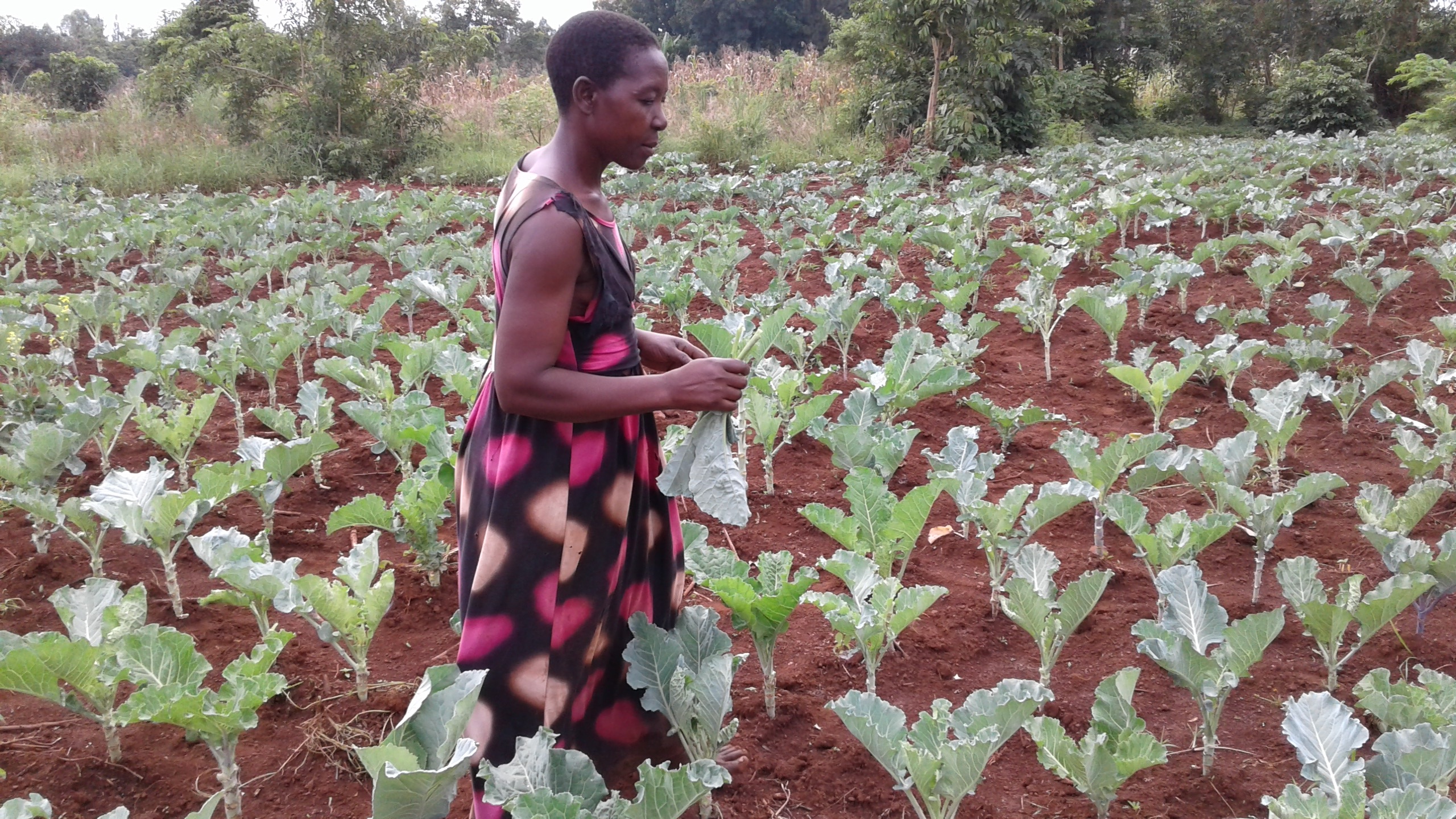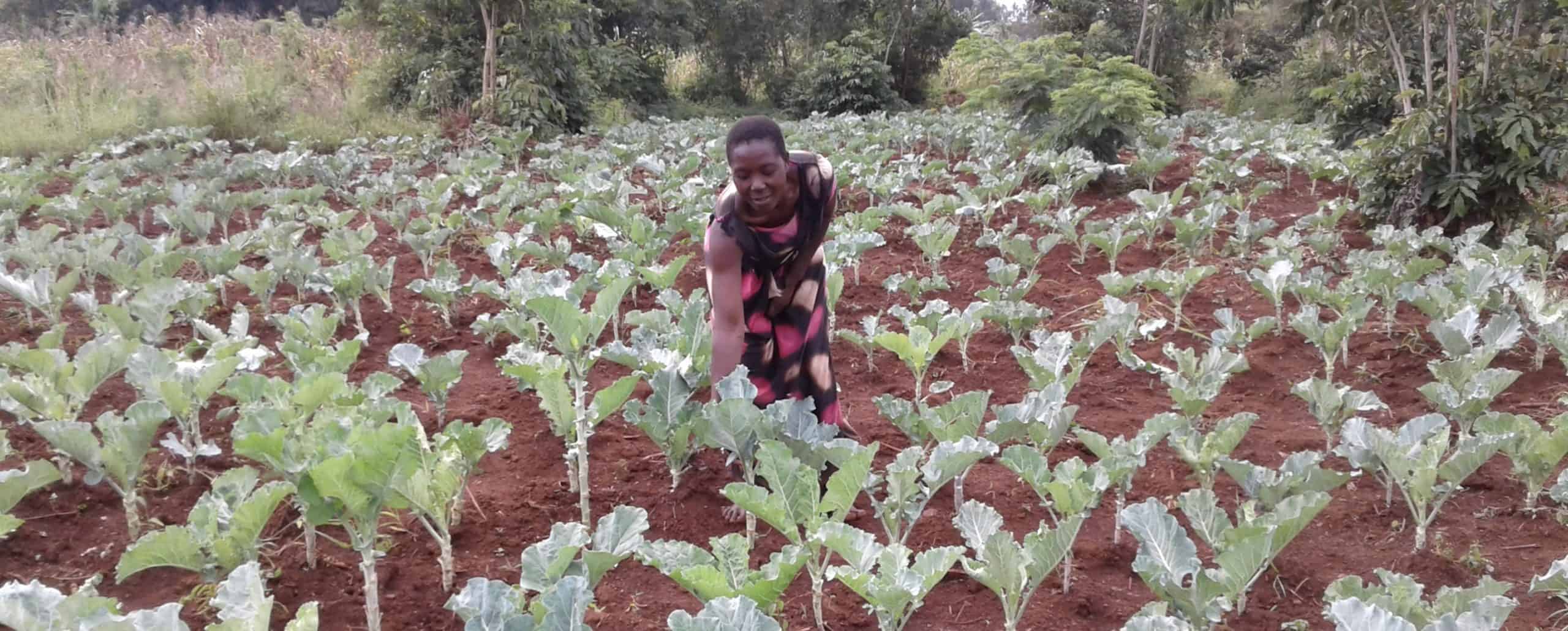
Originally, Nangira only grew tomatoes, maize, and cassava and sold them at the local market. These crops, however, were not providing enough to feed her and her family. Since embracing the Forest Garden Approach, Nangira has planted trees to improve the health of her land and she’s growing a more diverse mix of vegetables, including collard greens, amaranth, and calliandra.
“The vegetables in my garden have really helped my family, they are feeding us and I am selling some of them at the market,” says Nangira. “I have managed to make Ush 150,000 from selling sukuma wiki (collard greens) which I used to buy a piglet and a hen that has already hatched 10 chicks.” Nangira has made so much progress amid the pandemic and managed to sustain her home and Forest Garden.
Nangira’s success just six months into the four-year program is particularly promising given the unique challenges brought on by COVID-19. Uganda declared it’s lockdown in late March just after TREES opened the Busia 2 project. But TREES found creative ways of executing their work to protect the health of farmers like Nangira while still providing her the education she needed to change her life for the better. TREES technicians conducted remote training through phone calls with lead farmers and by sharing ‘how-to videos’ with farmers.
TREES Busia Two Lead Technician Ibrahim Ocira says he is proud of how far Nangira and the other farmers in the project have come given the circumstances.
“Even with all the obstacles like the lockdown and not being able to meet and train farmers physically, these farmers have managed to raise nurseries and outplant so many trees and vegetables between April and July 2020,” Ibrahim says.
“It is very encouraging to see farmers like Nangira already reaping these benefits in a space of 4 months given that we only opened this project early this year,” he adds.
Nangira takes pride in her Forest Garden and being a part of the TREES project in Busia. “I thank Trees for the Future in Busia for the support they are giving us,” she says, “the project has really helped us in Busitema sub-county and as a community, it is our project.”
TREES continues to see an increase in the availability of food as well as income within the first year of these projects, proving that the Forest Garden is an effective tool in ending hunger and poverty. Farmers like Nangira are further proof of its success and will continue to benefit for years to come.
Help more farmers like Nangira get the training and resources they need to improve their land and lives. Donate today.
